Feeding Hamster Guides: Feeding your hamster
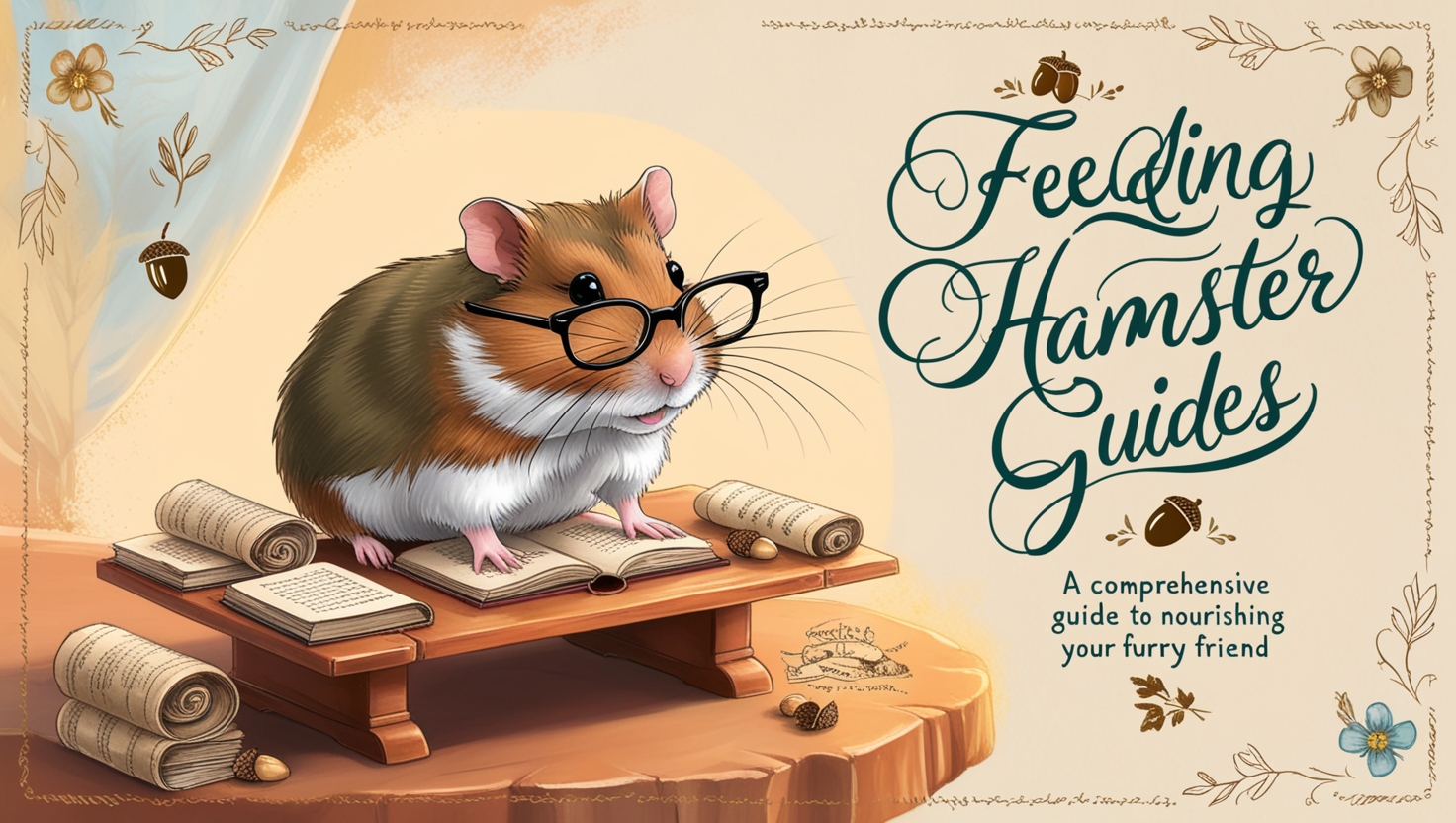
4. What sort of food should you give your hamster?
Feeding Hamster Guides – If your hamster was living in its natural environment it would be eating seeds and grasses, plus a few insects. Hamsters are naturally omnivorous, just as humans are. The natural hamster food that you can buy at the pet store is made to mimic the seeds and grains that a hamster would eat in the wild. You should opt for this natural food, rather than the highly coloured varieties which may look interesting, but which often contain a lot of additives.
Once a week you can consider giving your hamster an edible treat by providing some meal worms, or a small amount of boiled egg. These are favourites with most hamsters, and they are also rich in protein so they make an excellent addition to your pet’s diet.
Always remember that you should never give your pet anything sticky to eat. If you do it may get stuck in their cheek pouches and cause an injury.
- Choosing a type of hamster
- Buying your hamster
- Your hamster’s home
- Feeding your hamster
- Getting to know your hamster
- Exercise
- Cleaning
- Health problems
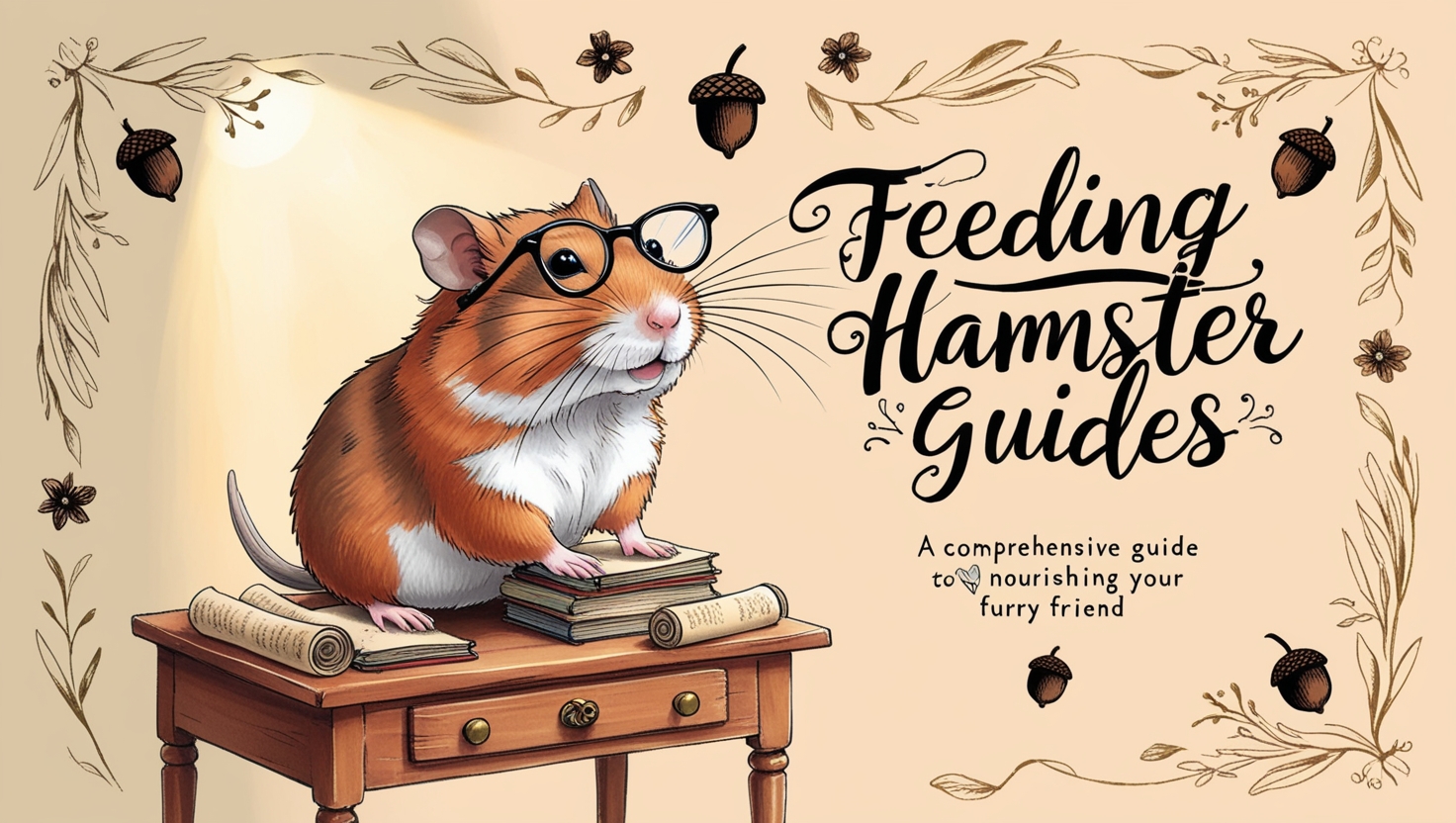
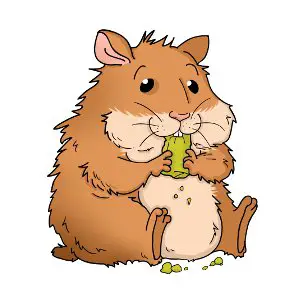
What about fruit and vegetables?
Your hamster will love to eat fruit and vegetables, but you should be careful not to give them too much. A small cube of fruit or vegetable, two or three times a week, is more than enough.
Be very careful when giving your hamster carrots to eat. Your furry friend will absolutely love them, but it’s important to remember that carrots are full of natural sugars and should be provided as a treat, not as part of a hamster’s regular diet.
Other fruits and vegetables that your hamster will like include cauliflower, broccoli, pear, peach and banana. Always remember to remove any uneaten food from your hamster’s cage so that it doesn’t rot.
How much food does a hamster eat?
One of the main problems is that a hamster will often beg for food even when they are not hungry. They maintain the habits that they have in the wild, and store food in their cheek pouches to eat later. In the wild this is because hamsters search for food at night, which they then take back to their underground home.
This does not mean that they sleep all day in the wild; they do actually wake up and snack on the delicacies that they have collected. In captivity is isn’t necessary for hamsters to build up a large stock of food as they always have access to fresh nourishment in their cage. So, they may continually beg for more to stash away, but only feed your pet as much as they need to eat.
The PDSA recommends that a Syrian hamster needs to be fed approximately 10g of dry food twice a day. It may surprise you to learn that a dwarf hamster needs about the same. They may be smaller in stature but they have a higher metabolism than Syrian hamsters.
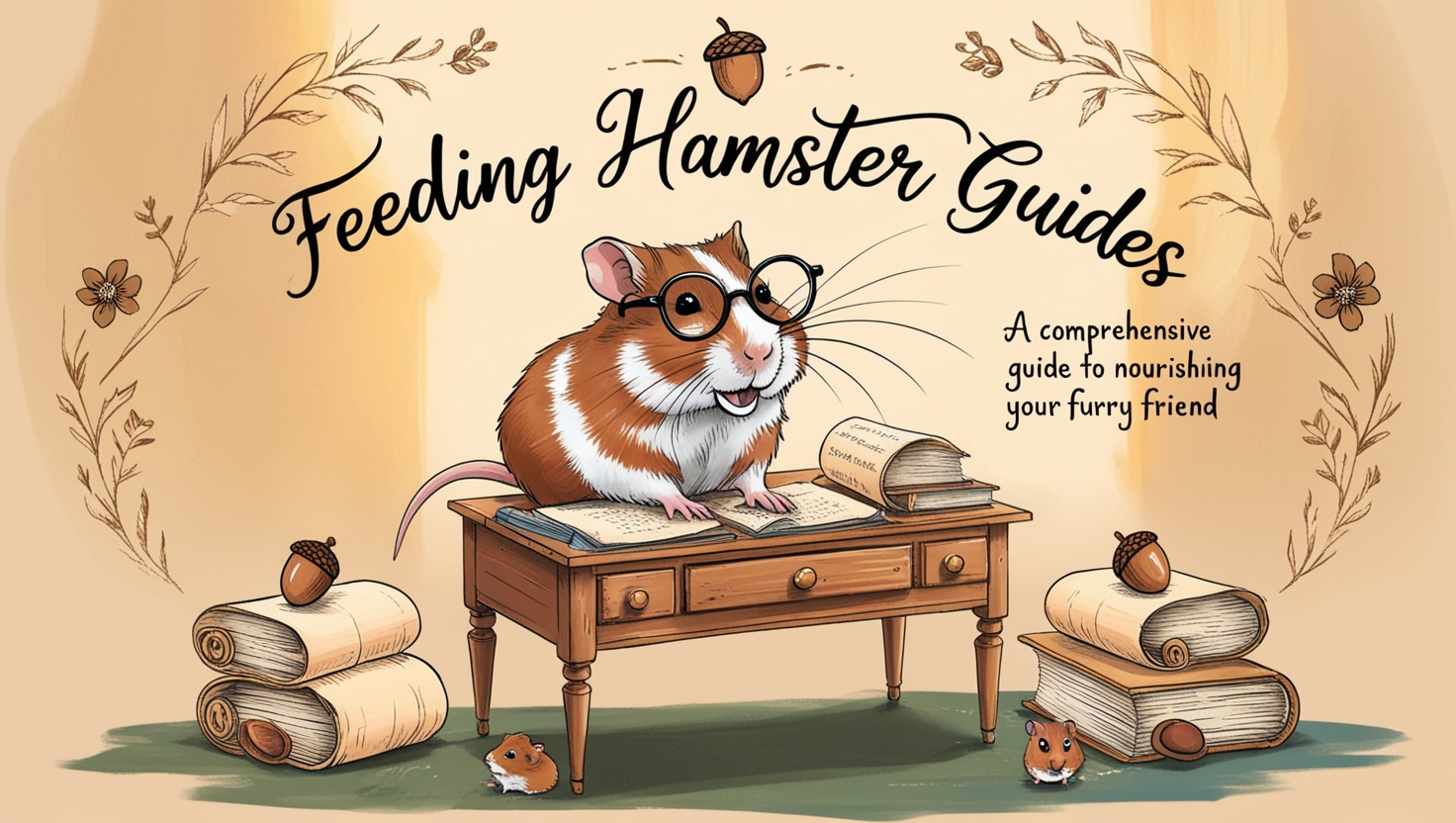
What time of the day is best for feeding a hamster?
Many people think that hamsters don’t eat at all during the day but as we’ve already mentioned this isn’t true. Hamsters certainly doze during the day but they will still wake to eat at times, so there is no harm in providing a little food in the morning and a little in the evening.
The main thing is to ensure your furry companion has the right amount of food, and that fresh food is supplied at each feeding time. The water in your hamster’s water bottle should also be changed each day, and the bottle should be washed thoroughly at least once a week.
What type of water should a hamster drink?
Many people give their pet hamster water straight from the tap, but water high in chlorine is not good for your pet. It is often a good idea to give your hamster filtered water to drink if you live in an area where the tap water contains a lot of chlorine, or other chemicals.
- Choosing a type of hamster
- Buying your hamster
- Your hamster’s home
- Feeding your hamster
- Getting to know your hamster
- Exercise
- Cleaning
- Health problems
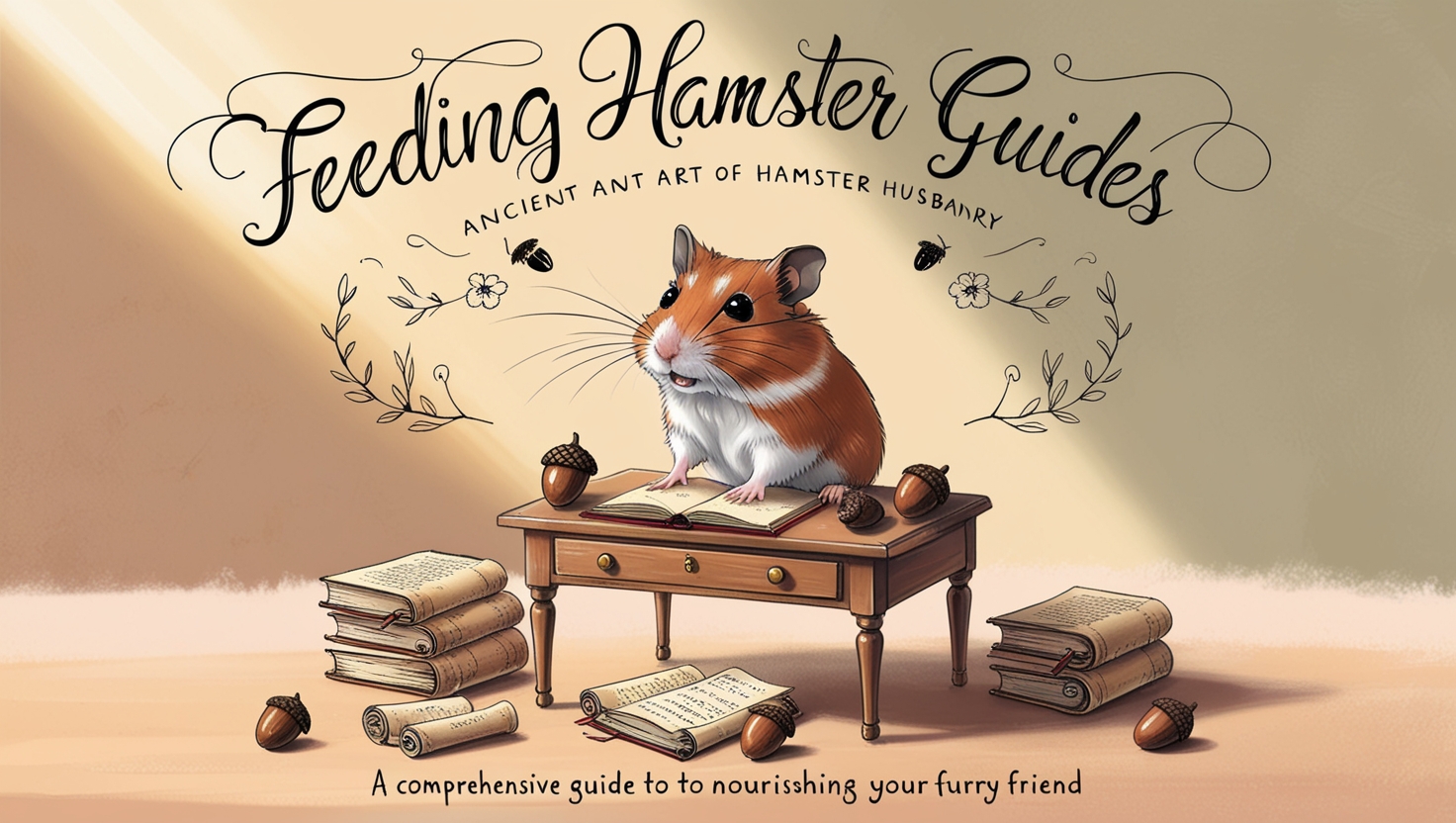
FAQs
Ensuring your hamster receives a balanced and nutritious diet is crucial for their health and well-being. Here are some frequently asked questions about feeding your hamster:
What do hamsters eat?
Hamsters are omnivores, meaning they need a mix of plant-based and protein sources. A well-rounded diet includes:
High-Quality Hamster Food: This should make up the majority of their diet (about 75-85%). Look for a commercial pellet or seed mix specifically formulated for hamsters.
Fresh Fruits and Vegetables: Offer small amounts as treats (about 10-15% of their diet). Safe options include:Vegetables: Broccoli, carrots, cucumber, spinach, zucchini.
Fruits: Apples (without seeds), bananas, blueberries, strawberries.
Occasional Protein Sources: Provide small amounts a few times a week (about 5-10% of their diet). Safe options include:Cooked, unseasoned chicken or turkey.
Boiled eggs (plain).
Mealworms (live or dried). Read more at: https://hamsterpetcare.com/what-do-hamsters-eat/
How much should I feed my hamster?
This depends on your hamster’s species, age, and activity level. As a general guideline:
Syrian Hamsters: 1-2 tablespoons of hamster mix per day.
Dwarf Hamsters: 1-1.5 tablespoons of hamster mix per day.
Offer fresh food and treats in small quantities and adjust the amount based on how much your hamster eats.
How often should I feed my hamster?
You can feed your hamster once a day, preferably in the evening when they are most active. Scatter the food around their cage to encourage foraging behavior.
What foods are toxic to hamsters?
Never feed your hamster the following foods, as they can be harmful or even fatal:
Almonds
Apple seeds
Avocado
Chocolate
Citrus fruits (oranges, lemons, limes)
Garlic
Onions
Raw beans
Rhubarb
Can hamsters have treats?
Yes, but in moderation! Offer hamster-safe treats like:
Plain yogurt drops
Unsalted sunflower seeds
Pumpkin seeds
Small pieces of cooked pasta
What are the signs of an unhealthy diet in hamsters?
Watch for these signs:
Weight loss or gain
Diarrhea
Lethargy
Hair loss
Dull coat
If you notice any of these signs, consult your veterinarian.
Do hamsters need supplements?
A balanced diet usually provides all the nutrients your hamster needs. However, your veterinarian may recommend supplements in specific cases.
By providing a varied and balanced diet, you can help your hamster live a long, healthy, and happy life!
